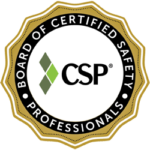On January 21, 2021 President Biden issued an Executive Order for Protection of Worker Health and Safety. Amongst other things, it requires that the Secretary of Labor who oversees the Occupational Safety and Health Administration (OSHA) issue temporary emergency standards so that OSHA can conduct targeted enforcement of the federal OSHA standards as well as in those states which have State-Plan regulations for worker health and safety related to COVID-19. The Executive Order also requires OSHA to establish a multilingual outreach program to inform workers on the hazards of COVID-19 and how they can protect themselves from the disease.
Since the beginning of the Pandemic, OSHA has been busy enforcing existing laws to protect worker health and safety with over $4 million in proposed penalties. There have been 12,947 complaints to federal OSHA and another 42,703 complaints to State Plan OSH programs. OSHA states that it has conducted over 10,000 outreach activities since last year related to COVID-19 and removed over 600,000 workers from COVID-19 hazards. Most of the federal citations were regarding the respiratory protection standard, recordkeeping of workplace related illnesses and fatalities, and reporting to OSHA of work-related hospitalizations and fatalities. The Bloodborne Pathogen Standard was also cited as one of the standards that employers were found to be in non-compliance.
The respiratory protection violations were mostly for lack of medical evaluation of workers prior to use of a respirator, annual fit testing of employees with respirators, and training and information for workers required to wear respirators. Cloth face coverings are currently not considered respirators and those requirements would not apply to cloth face coverings. Filtering face piece respirators, also known as dust masks, were also exempt from the many requirements, if the use was voluntary. All that OSHA required is that the employees be given a short paragraph which details the shortcomings of the dust masks. Once the use is mandated, then the entire standard 29 CFR 1910.134 becomes required. This includes but is not limited to medical evaluations, fit testing, training, and proper care and use of the respirators in accordance with a written respiratory protection program. The most common of these are N95 dust masks approved by the National Institutes of Occupational Safety and Health (NIOSH) to remove 95% of particulates if proper, worn fitted, and fit tested. KN 95 masks commonly replace the N95 as they are the Chinese-made equivalent to the N95 masks.
Under the respirator standard, respirators are considered a last line of defense. Engineering controls must be implemented where feasible. These may include plexiglass shields to isolate people from each other, increasing supplied air ventilation for dilution, as well as increasing air filtration with better grade air filters on air units. Social distancing would be an administrative control as well as distance working from home or video conferencing in place of face-to-face meetings.
Covid-19 and emerging variants are likely to be with us for some time to come and employers need to think long term about this new aspect of health and safety.
If you need assistance with OSHA compliance or Covid-19 specific building testing services, such as swab and air sampling to test for the presence of Covid-19, post-cleaning verification, or ATP surface testing, please reach out to RPF Environmental. We have been providing air quality testing, including assessments to help measure the amount of fresh air in building spaces since 1991.
Contact RPF Environmental, Inc. today by filling out an online contact form, or by dialing 603-942-5432.




